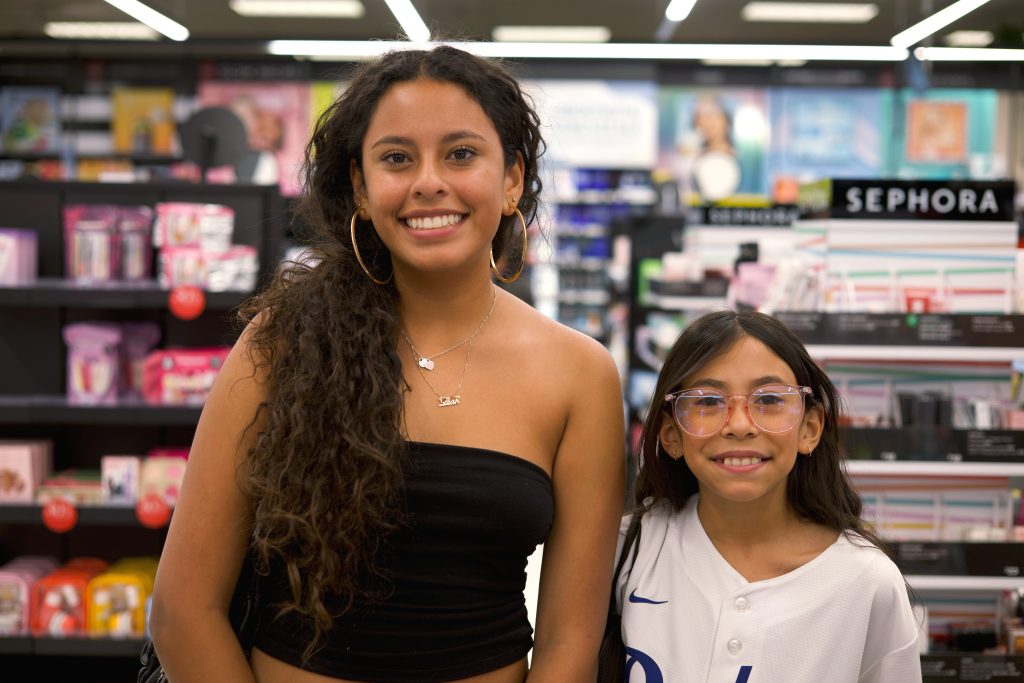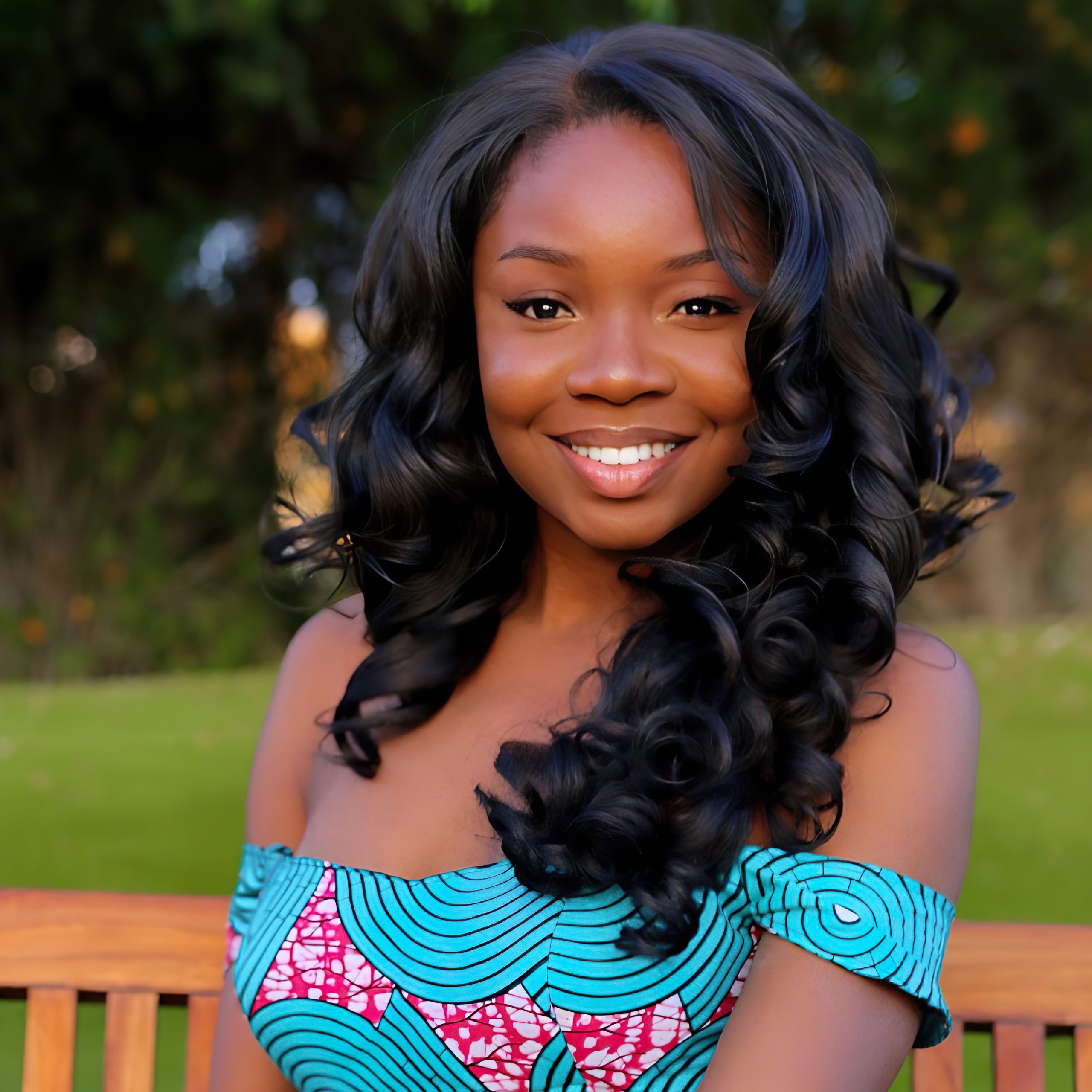
For some children, Black Friday shopping means new electronics and early Christmas presents. For 17-year-old Nazira Saifuddin, who lives in Los Angeles County, it meant only one thing – new skincare products. Nazira was only 12 years old when she got into skincare. Not wanting to feel left out of group conversations with her friends, she followed their lead and began adding product after product to her skincare routine. A self-described “easily influenced” teen, she later learned about hyperpigmentation from influencers on TikTok and became convinced she needed even more products to fix it. What began as a hobby eventually became an obsession and turned into a 15-step skincare routine that left her skin feeling dry and irritated.
“I thought I was so cool for having all those products and doing all that,” she said. “And then like I think it actually made it worse.”
Nazira’s experience is a cautionary tale, one that is more common these days with the concerning rise in children using skincare products and the marketing targeted towards teens and tweens that makes them feel forced to do so.
Gen Z’s and Gen Alpha’s skincare craze has drawn concern from politicians looking to crack down on the companies’ marketing to children, particularly when it comes to anti-aging products that promise to combat wrinkles. Late last year, just days before Black Friday, Connecticut Attorney General William Tong held a press conference to declare an investigation into Sephora’s marketing practices.
“I’m here to announce that I’ve sent a letter to Sephora, the major international retailer of beauty products, asking deep and detailed questions about how on their site and through their marketing, they target kids, girls, tweens, and teens,” he said. “And, in particular, anti-aging products sold by such manufacturers as Drunk Elephant and Glow Recipe.”
One product in Tong’s crosshairs is the Itty Bitty Midi Committee Acid Kit, a $79 Drunk Elephant product with bright packaging that he says is geared towards children. On Black Friday, several Sephora locations were not selling this product, though it was still available online.
For Tong, this isn’t just a political or legal issue, but also a personal battle. He is the father of two girls, one who is a teenager.
“I have an 18-year-old and a 16-year-old daughter and skincare is a big deal,” said Tong. “There are a variety of companies and manufacturers and advertisers that have targeted them since they were little kids up until now. And I see it with them. It’s a focus. It can be an obsession.”
Tong isn’t the only government official taking action against retailers. Last year, California Assemblyman Alex Lee put forward a first-of-its-kind bill that would have prevented anti-aging products from being sold to children under 13-years-old without parental consent, though the bill failed to progress out of committee.
Health experts have likewise taken notice and spoken out about the physical harm that these products can cause.
Many of the products marketed to tweens contain salicylic acid and retinoic acid, components in anti-aging products that can disrupt the natural skin barrier for normal pediatric skin, said Juan Salazar, a pediatrician and the physician-in-chief for Connecticut Children’s. Salazar also says that retinoic acid, also known as retinol, should not be used in anyone under 20-years-old.
“Children’s skincare is much more sensitive,” said Salazar. “In fact, it’s very healthy. It doesn’t need any of these products. These products can lead to irritation, redness, breakouts, and even longer-term damage.”
Dermatologists not only recognize the issue but are doubling down on education to ensure proper skincare practices among children. Sophia Ederaine, a second-year dermatology resident at UC Irvine, is using both her social media platform and in-person outreach to educate young people directly. Every month, she and her co-residents visit local high schools as part of a dermatology outreach program aimed at mentoring students and promoting healthy skincare habits.
On a recent afternoon at a Southern California high school, Ederaine walked students through the basics, starting with the importance of sunscreen. The students bombarded her with questions about acne, hyperpigmentation, and, most notably, retinol.
“They might not be using [products] correctly,” Ederaine said. “So for example, they’re using tretinoin (retinol) in the morning time instead of at night, right? So tretinoin we know is activated in the sun and there’s oxidation reactions that occur. So now they’re wearing tretinoin in the middle of the day and then they’re going to get a sunburn.”
Retinol has become a buzzword among teenagers, thanks to influencers promoting it as a must-have for flawless skin. However, Ederaine cautioned the students that retinol products are typically recommended for people in their mid-20s and older, if their skin develops persistent acne that requires targeted treatment.
“I always tell them—when you’re 25, let’s talk about it. Right now, the most important thing you can do is wear sunscreen consistently,” she said.
Ederaine is no stranger to the power of social media herself. Recently, she was selected to be part of the Sephora Squad, an exclusive group of influencers chosen to promote the brand and skincare. As the first dermatologist in the group, she sees her role as educational.
The heightened use of skincare in children has left even Sephora employees uneasy. Kitty Rodriguez, a longtime Sephora employee, still wrestles with the duty she has to sell products and the duty she feels to protect children shopping for skincare items.
“Sometimes it’s hard. Sometimes I almost…I mean it’s my job to sell, but in a way it almost makes me feel uncomfortable. You know? Because they’re little kids.”
Despite this, the momentum around marketing products to children doesn’t show any signs of slowing down as this is the fastest growing demographic among skincare purchasers.
Likewise, the efforts to slow down this marketing don’t seem to be losing steam. Attorney General Tong mentioned that he was recently at a meeting with attorneys general from other states and the topic of social media marketing to children was brought up.
It’s possible that more legal efforts may be coming from other states to stem the marketing tide. In the meantime, Tong, who has also sued Meta and is investigating TikTok, awaits a response from Sephora.
“What we’re going to insist that they do is take steps to protect young people, and particularly kids and teenage girls.”

